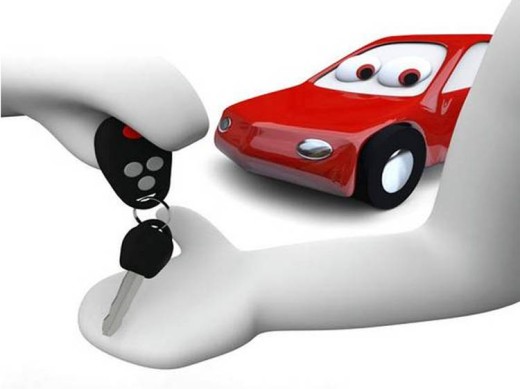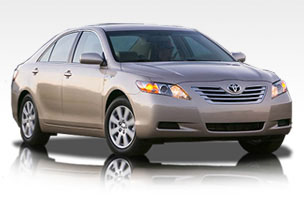
Choice of Auto Repair Shops
When an automobile is damaged by collision, vandalism, theft, or fire, a consumer must decide where to take the automobile for repairs. Some insurance companies maintain lists of “preferred” auto body repair shops, which the insurance company might recommend the consumer use. Remember, the consumer has the choice of whether or not to use an insurance company’s preferred shop.
California insurance regulations contain specific requirements that insurance companies must follow when they direct a consumer to a company recommended repair shop. These requirements are contained in California Code of Regulations (CCR) Section 2695.8(e) of the Fair Claims Settlement Practices Regulations:
(e) No insurer shall:
1) require that an automobile be repaired at a specific repair shop; or,
2) direct, suggest, or recommend that an automobile be repaired at a specific repair shop, unless,
- such referral is expressly requested by the claimant; or
- the claimant has been informed in writing of the right to select the repair facility; and,
- the insurer that elects to repair a vehicle or directs, suggests, or recommends that a specific repair shop be used, shall cause the damaged vehicle to be restored to its condition prior to the loss at no additional cost to the claimant other than as stated in the policy or as otherwise allowed by these regulations.
3) require a claimant to travel an unreasonable distance either to inspect a replacement automobile, to conduct an inspection of the vehicle, to obtain a repair estimate or to have the automobile repaired at a specific repair shop.”
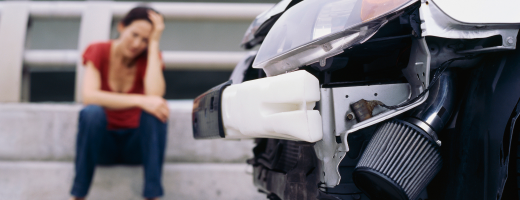
Under California Insurance Code (CIC) Section 758.5 an insurance company cannot require that an automobile be repaired at a specific repair shop. However, an insurance company can recommend that an automobile be repaired at a specific repair shop under the following conditions outlined by law:
- The consumer specifically requests a recommendation from the insurance company to a repair shop.
- The consumer has been informed in writing of the right to select a repair shop of his or her choice.
- If the consumer agrees to use the recommended repair shop, the insurance company must restore the damaged vehicle to its condition prior to the accident or loss with no additional cost other than as stated in the policy or as otherwise allowed by law.
- If the company makes an oral recommendation to a repair shop, and it is accepted by the consumer, then the company must follow the oral recommendation with the prescribed written notice within five calendar days as specified by law.
If the vehicle is repaired at a shop chosen by the consumer, the the insurance company must pay the reasonable costs to repair the vehicle in a workmanlike manner. The insurance company is prohibited from limiting or discounting reasonable repair costs based on charges that would have occurred if the vehicle had been repaired at the company’s recommended repair shop. Also, the insurance company must stand behind the repairs of the recommended shop if the vehicle is not repaired properly.
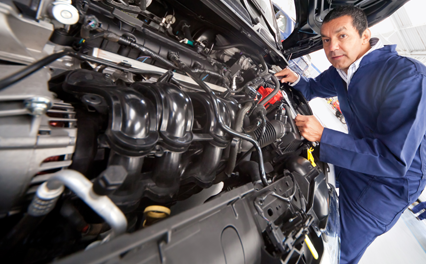
Quality of Car Repairs
Most disputes which involve poor quality or improper repairs by a repair shop cannot be resolved by the California Department of Insurance. These types of complaints would fall under the jurisdiction of the Bureau of Automotive Repair. Just like any other type of business, all repair shops do not perform the same quality of work. A repair shop is not required by law to guarantee its repair work, but many shops do guarantee some of the repairs. Please check with the repair shop to determine exactly what the shop will and will not guarantee. If a repair shop does guarantee the repairs, it must be in writing. However, as advised earlier, if a consumer has an auto repaired in a shop recommended by the insurance company, the insurance company must warrant that the repairs are done in a workmanlike manner. Therefore, if the recommended repair shop refuses to correct a repair problem, please contact the insurance company for assistance. If the insurance company does not resolve the repair problem, a consumer can contact the California Department of Insurance for assistance.
Repair Costs
A dispute may arise as to how much money the repair work should reasonably cost. California insurance regulations contain specific requirements of insurance companies when disputes arise regarding the cost of repairing a damaged vehicle. These requirements are contained in CCR section 2695.8(f ) of the Fair Claims Settlement Practices Regulations:
“(f) If partial losses are settled on the basis of a written estimate prepared by or for the insurer, the insurer shall supply the claimant with a copy of the estimate upon which the settlement is based.
The estimate prepared by or for the insurer shall be in accordance with applicable policy provisions, and of an amount which will allow repairs to be made in a workmanlike manner.
After-Market Parts
An auto repair may include replacement of damaged parts with after-market parts. After-market parts are not made by the original manufacturer. They may be equal, better, or worse in quality than original equipment manufacturer parts. California insurance regulations place specific requirements on insurance companies when recommending that a consumer have the damaged vehicle repaired using after-market parts.
These requirements are contained in CCR section 2695.8(g) of the Fair Claims Settlement Practices Regulations:
“(g) No insurer shall require the use of non-original equipment manufacture replacement crash parts in the repair of an automobile unless:
- the parts are at least equal to the original equipment manufacturer parts in terms of kind, quality, safety, fit, and performance;
- insurers specifying the use of non-original equipment manufacturer replacement crash parts shall pay the cost of any modifications to the parts which may become necessary to effect the repair; and
- insurers specifying the use of non-original equipment manufacture replacement crash parts warrant that such parts are of like kind, quality, safety, fit, and performance as original equipment manufacturer replacement crash parts; and,
- all original and non-original manufacture replacement crash parts, manufactured after the effective date of this subchapter, when supplied by repair shops shall carry sufficient permanent, non-removable identification so as to identify the manufacturer. Such identification shall be accessible to the greatest extent possible after installation.
(h) No insurer shall require an insured or claimant to supply parts for replacement.”
An auto repair shop is required to provide a written repair estimate of the cost of repairs prior to initiating repairs to the vehicle. Once the work is completed, the shop must then provide a written repair invoice. State law requires that the type of auto parts used in repairs must be identified on the repair invoice. Consumers should carefully check their invoices to ensure that the auto body shop has identified each auto part replaced as being used, reconditioned, rebuilt, an original equipment manufacturer part, or an after-market part. If the repair estimate or invoice does not identify the type of part used, a consumer may wish to contact the Bureau of Automotive Repair.
If the claimant subsequently claims, based upon a written estimate which he or she obtains, that necessary repairs will exceed the written estimate prepared by or for the insurer, the insurer shall:
- pay the difference between the written estimate and higher estimate obtained by the claimant; or,
- promptly provide the claimant with the name of at least one repair shop, if requested by the claimant pursuant to subsection 2695.8(e)(2), that will make the repairs for the amount of the written estimate.If the insurer designates fewer than three repair shops, the insurer shall assure that the repairs are performed in a workmanlike manner.The insurer shall maintain documentation of all such communications; or,
- reasonably adjust any written estimates prepared by the repair shop of the insured ‘s choice.”
Under these regulations an insurance company must provide a claimant with a copy of an estimate to repair the automobile. In cases where the body shop estimate or the actual repair costs exceed the amount the insurance company is willing to pay, the consumer may be required to pay the difference.
If a consumer believes this difference is the responsibility of the insurance company, he or she should seek to resolve this dispute with the insurance company.
If the insurance company does not resolve this problem, the consumer may contact the California Department of Insurance for assistance.
Auto Body Repair Consumer Bill of Rights
A Consumer Is Entitled To:
- Select the auto body repair shop to repair auto body damage covered by the insurance company. An insurance company may not require the repairs to be done at a specific auto body repair shop.
- An itemized written estimate for auto body repairs and, upon completion of repairs, a detailed invoice. The estimate and the invoice must include an itemized list of parts and labor along with the total price for the work performed. The estimate and invoice must also identify all parts as new, used, after-market, reconditioned, or rebuilt.
- Be informed about coverage for towing services. Unless the insurance company has provided an insured with the name of a specific towing company prior to the insured’s use of another towing company, the insurance company must pay all reasonable towing charges of the towing company used by the insured.
- Be informed about the extent of coverage, if any, for a replacement rental vehicle while a damaged vehicle is being repaired.
- Be informed of where to report suspected fraud or other complaints and concerns about auto body repairs.
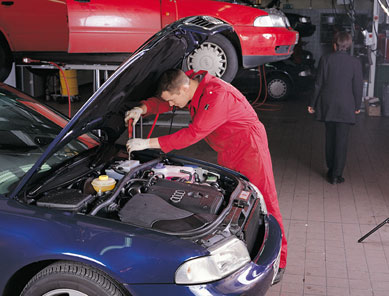
Where to File Complaints?
Complaints involving insurance companies should be directed to the California Department of Insurance. Complaints involving a repair shop do not fall within the regulatory jurisdiction of the California Department of Insurance and should be directed to the Bureau of Automotive Repair.
Complaints Within the Jurisdiction of the California Insurance Commissioner
The type of issues involving auto repairs which the Department of Insurance will examine are as follows:
- An insurance company requiring a claimant to have the automobile repaired at a specific shop.
- An insurance company recommending a certain repair shop, but not advising a consumer in writing of the right to select the repair shop.
- An insurance company recommended shop not performing adequate repairs to the damaged vehicle.
- An insurance company not resolving repair disputes between a recommended shop and a consumer.
- An insurance company not providing a claimant with a written estimate of repairs.
- An insurance company not paying enough to have the auto repaired properly.
- An insurance company requiring the use of after-market parts that are not at least equal to the original equipment manufacturer parts in terms of kind, quality, safety, fit, and performance.
- All other issues which directly involve the actions of the insurance company.
Complaints Within the Jurisdiction of the Bureau of Automotive Repair
The type of issues involving auto repairs which the Bureau of Automotive Repair will examine are as follows:
- Improper or poor quality repairs by a repair shop.
- The repair shop’s failure to provide a written repair estimate or invoice.
- The repair shop’s failure to identify the part used as being reconditioned, rebuilt, an original equipment manufacturer part, or an after-market part.
- The repair shop charging excessive amounts to repair an automobile or charging a rate in excess of its posted rate.
- Other issues which directly involve the actions of the auto repair shop. Please check with the Bureau of Automotive Repair if there is a question as to what types of complaints it will examine.
Source : Insurance Information Of Canada
